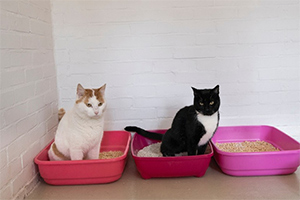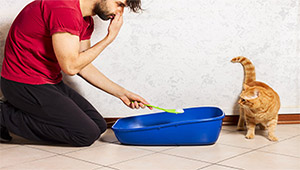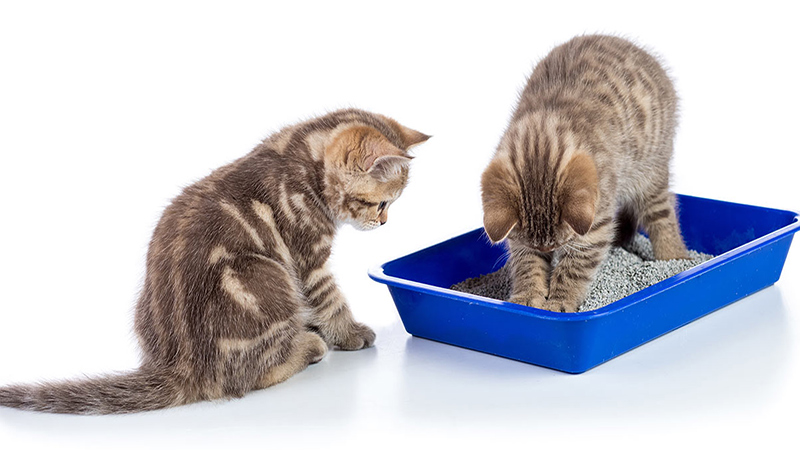The litter box is an essential gear for cat parents. It prevents your home from cat feces and urine and provides your feline friend with personal space. Although cats are sensitive for their litter boxes, it is more than a bathroom. Owners with more than one cat often question how many litter boxes they should have in the house. As cat litter boxes are a territory for them, most cats do not like to share their property with other cats.
Related Topics You Might Like:
Products Related To Topic
"(Paid Links)" ▶ As an Amazon Associate, We earn from qualifying purchases.
Do two cats have to share a litter box?
It is not a good idea to supply two cats with only one litterbox. In fact, according to the experts, you should have an equal number of litter boxes as cats, plus one. If you have two feline friends, you should offer three litter boxes for them.

Why cats do not share the litter box
There are two critical reasons for this: habit and health. On the one hand, Cats are territorial animals who want their own area for specific activities. Urinating and defecating is one of the most intimate activities for cats.
Most of the cats like to have their own litter box with their own scent for their needs in the comfort of their own homes. Another significant factor is health. When two cats urinate and defecate in the same litter box, the litter box becomes a breeding ground for bacteria. This is not ideal if you work away from home and don't have time to clean it whenever they use the litter box. Their excrement can build up and cause health problems. This is why it's preferable if they have their own litter box and an extra in case something goes wrong.
Why cats should have their own litter boxes
Hygiene
The most potent argument for cats having their own litter box is that it is more sanitary. Two cats sharing a litter box will quickly fill it, making it unsanitary. Suppose you're gone from home or don't have time to clean the litter box. Your cats are less likely to use it again, and it might harbor potentially deadly bacteria, causing health problems.
Behavior
Cats are typically territorial animals who like to do their business in their own place. Forcing your cats to share a can generate stress and worry in your cats and territorial issues that may escalate to fighting. The dominant cat in the pair may prevent the other from using the litter box, causing them to urinate or defecate in other areas of your home. It may cause your cat to delay urinating and develop kidney problems.
How to keep your cats' litter box clean
Cleaning the litter boxes of your cat
Clean your cat's litter box at least once a week. You must, however, scoop out their droppings daily. We've included an easy guide on cleaning your cat's litter box below:

Daily
Weekly
Avoid using harsh chemicals like bleach to clean it. Cats are susceptible to odors, which might drive them to avoid using the litter box entirely. It's also important to remember that some chemicals are hazardous to cats. So, to disinfect the litter box, use regular white soap and water.

